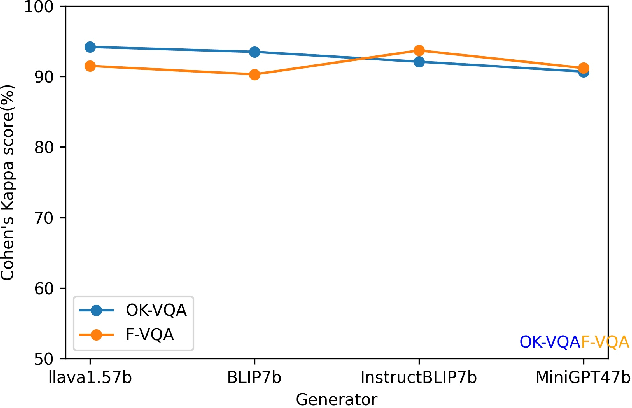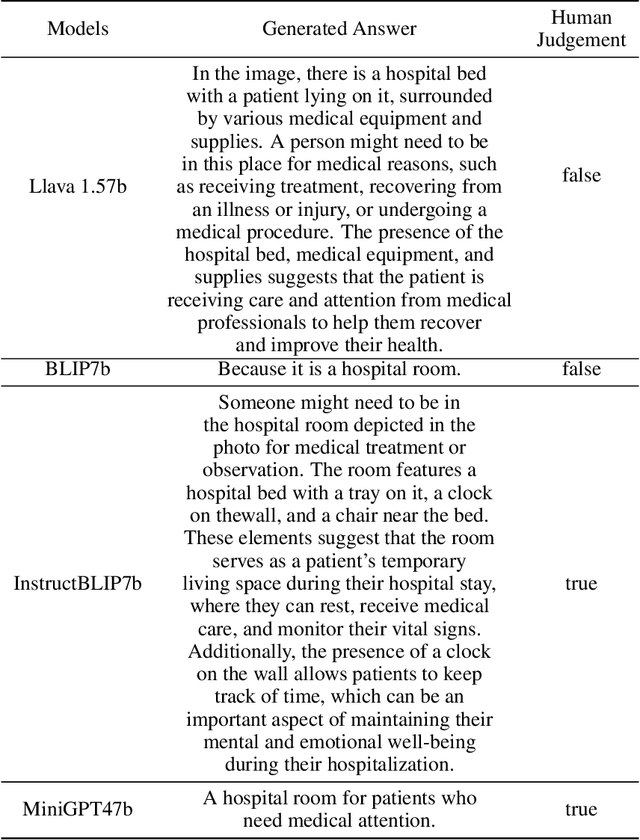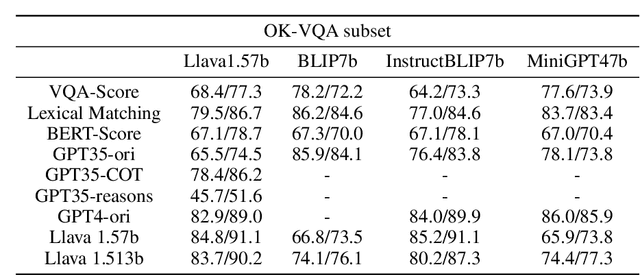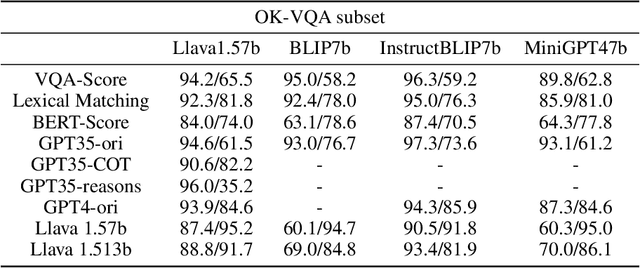Muchen Lan
KNVQA: A Benchmark for evaluation knowledge-based VQA
Nov 21, 2023



Abstract:Within the multimodal field, large vision-language models (LVLMs) have made significant progress due to their strong perception and reasoning capabilities in the visual and language systems. However, LVLMs are still plagued by the two critical issues of object hallucination and factual accuracy, which limit the practicality of LVLMs in different scenarios. Furthermore, previous evaluation methods focus more on the comprehension and reasoning of language content but lack a comprehensive evaluation of multimodal interactions, thereby resulting in potential limitations. To this end, we propose a novel KNVQA-Eval, which is devoted to knowledge-based VQA task evaluation to reflect the factuality of multimodal LVLMs. To ensure the robustness and scalability of the evaluation, we develop a new KNVQA dataset by incorporating human judgment and perception, aiming to evaluate the accuracy of standard answers relative to AI-generated answers in knowledge-based VQA. This work not only comprehensively evaluates the contextual information of LVLMs using reliable human annotations, but also further analyzes the fine-grained capabilities of current methods to reveal potential avenues for subsequent optimization of LVLMs-based estimators. Our proposed VQA-Eval and corresponding dataset KNVQA will facilitate the development of automatic evaluation tools with the advantages of low cost, privacy protection, and reproducibility. Our code will be released upon publication.
 Add to Chrome
Add to Chrome Add to Firefox
Add to Firefox Add to Edge
Add to Edge